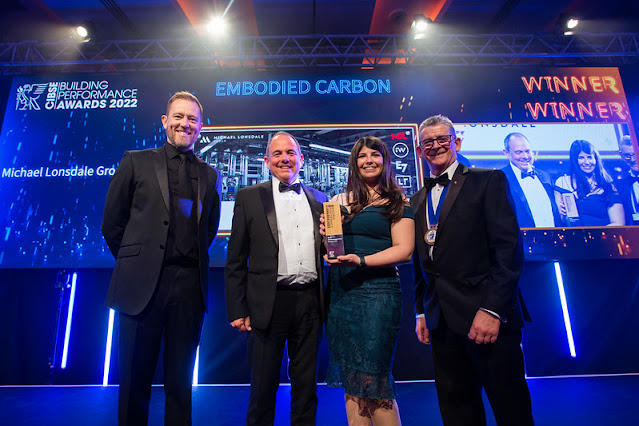#CIBSEsymposium 2019 was an extraordinary experience: A personal account from an international student on why smart building sessions were his highlight
Welcome back to our #CIBSEsymposium 2019 follow-up series. It is your space to highlight unique perspectives on Symposium content and outputs; share experiences as a first-time student-attendee or a returning colleague, all part of the inspiring community that Symposium attendees form. Environment allowing for an open exchange of cross-disciplinary learning is at the heart of what Symposium strives to embody. Thank you for all your support for the past 9 years.
This week, we have a pleasure of bringing you a very personal account from an international student.
We asked Christian Guerra - MSc Smart Buildings and Digital Engineering student at University College London - about his event highlights, motivation behind attending and how he envisages Symposium attendance will help in his further studies.
 By Christian Guerra, MSc Smart Buildings and Digital Engineering student at University College London
By Christian Guerra, MSc Smart Buildings and Digital Engineering student at University College LondonCIBSE Technical Symposium 2019 was the perfect complement to my studies in the UK. I learned about the symposium in January from my master’s module leaders Dimitrios Rovas and Ivan Korolija. The opportunity for our course to attend the symposium with the expenses covered by UCL arose, and without hesitation I accepted it.
The timing of the event was perfect for me as it was scheduled only a few days after the second taught term ended, and just before presenting the dissertation topic to be developed for the rest of the year. It was the perfect opportunity to re-evaluate the knowledge I had acquired up until then, to understand how the industry is working, the challenges it is facing, and therefore choose a topic appealing to me and relevant to the current state of the built environment.
The main highlights for me were the sessions focused on smart buildings which are the subject of my master degree. As an electronics engineer, I am drawn to the use of technology to optimize control systems in buildings. The case studies presented by Dr Kat Kelly, aligned with what I have learnt so far, showed that a “fabric first” approach will lower the heating demand and as a consequence, require a high response system with a better ventilation control strategy. I believe that the control can be improved by actively analysing the data collected from the building and adjusting the systems accordingly. To this point, Dan Cash showed how automated adjustments applied to the datacentres of google resulted in a 40% reduction of energy consumption for cooling. An automated home will lead to a further decrease in energy consumption while removing the occupant’s responsibility to adjust the systems when necessary.
As an international student, I am always trying to understand how the information given applies to my home country’s needs. The symposium was a great step on my objective to learn from the practices in the UK and apply them on my return to Ecuador. Learning about the challenges of energy performance modelling and its application in the British industry was a necessary complement to better understand how I might be applying it in the future. The main lesson was the need for designing for best performance and avoiding the mistake of modelling only for compliance.
Another highlight of the symposium was the ongoing discussion of the importance of commissioning, and the issues mentioned in the debate about whether or not soft-landings are having the impact they are supposed to. From my perspective, these topics have a global reach that will definitely have to be applied to the construction practices in Ecuador.
Attending the event has given me the opportunity to think about the area in which I would like to develop my career in the future. What I enjoyed the most from this experience was the opportunity to meet people from all around the world. Talking to people with different career backgrounds, sharing ideas about the projects they are working on, and receiving advice from their experience studying smart buildings was the highpoint of the symposium for me.
Finally, I would like to reiterate what I expressed at the Symposium. I am grateful to my government for sponsoring my master degree. I am proud of being part of The Bartlett and thankful to UCL for bringing me to the symposium to share and learn from the people leading change in the built environment.
The CIBSE Technical Symposium 2019 was an extraordinary experience that fuelled my curiosity and inspired several topics to explore in future research. I would highly recommend it and would love to return soon.
You may also find of interest
See the 2019 Symposium programme and full event overview.
Read our blog on Dr Kat Kelly's session mentioned by Christian, his personal Symposium highlight.
View past papers and case studies archive to learn about the value that Symposium contributors bring to the CIBSE community and sector as a whole. They can be freely downloaded as PDFs from our dedicated website.
About CIBSE Technical Symposium
The CIBSE Technical Symposium is an annual event featuring speakers and poster presentations from a range of disciplines. All papers and posters are peer reviewed. Anybody can submit a topic for consideration, which will then be assessed by a panel of reviewers to determine its suitability.
Have you had a chance to chat to any of the student attendees? Or maybe you are keen to share your own student perspective?
Join into conversation @CIBSE I CIBSE Linkedin using #CIBSESymposium
Thank you to all student attendees at this year's Technical Symposium 2019. Keep us posted on how Symposium involvement informed your research work.
2020 Symposium will yet again return with affordable ticket rates for qualifying student attendees.
2020 Symposium will yet again return with affordable ticket rates for qualifying student attendees.


.png)


Comments
Post a Comment